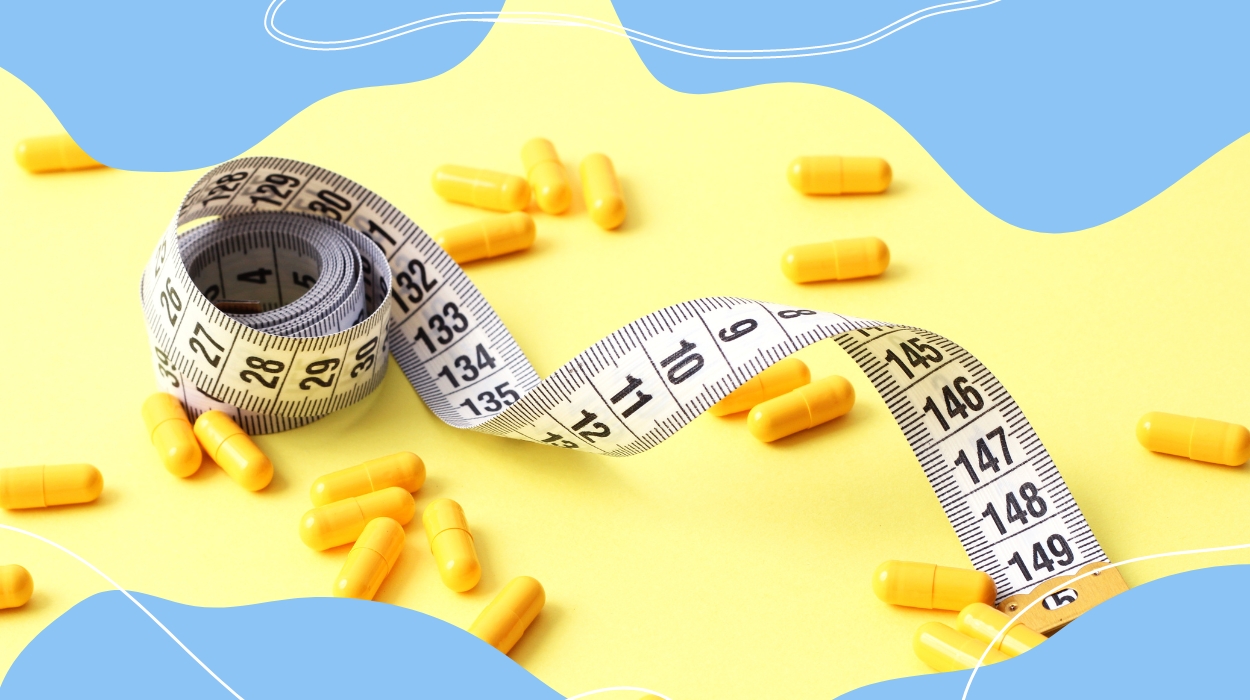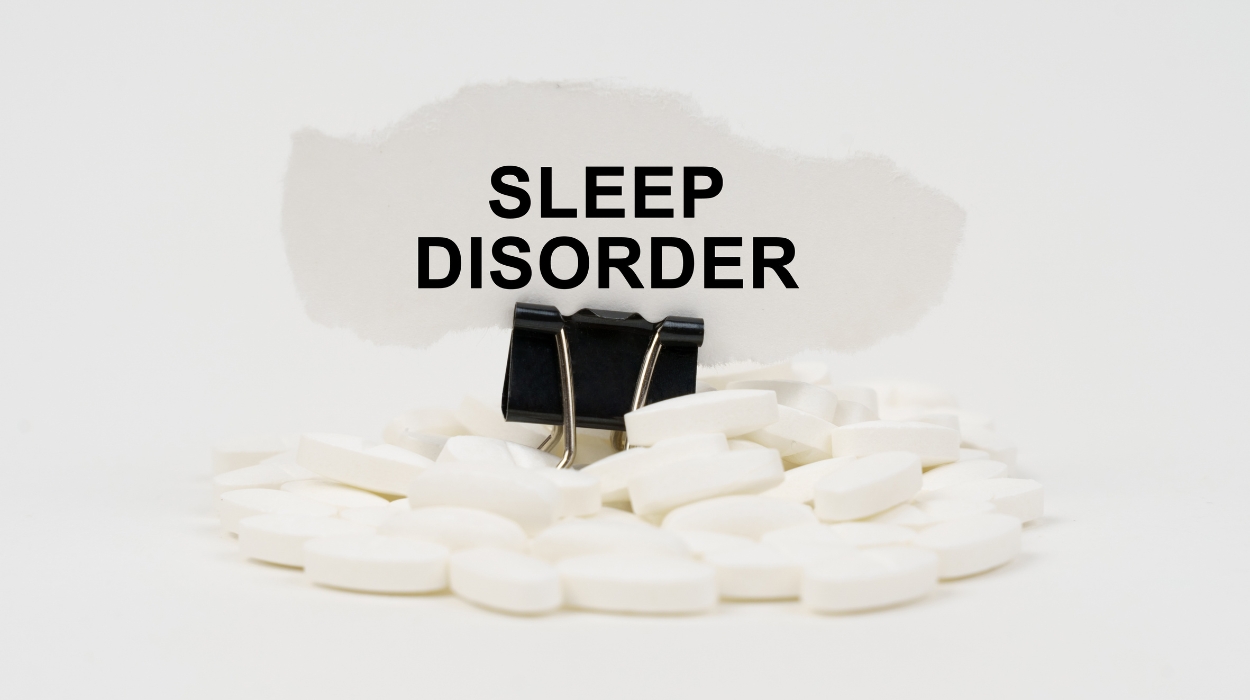 Expert's opinion
Expert's opinion
Expert's opinion
The article is a subjective view on this topic written by writers specializing in medical writing.
It may reflect on a personal journey surrounding struggles with an illness or medical condition, involve product comparisons, diet considerations, or other health-related opinions.
Although the view is entirely that of the writer, it is based on academic experiences and scientific research they have conducted; it is fact-checked by a team of degreed medical experts, and validated by sources attached to the article.
The numbers in parenthesis (1,2,3) will take you to clickable links to related scientific papers.
Adderall Weight Loss: Does Adderall Make You Lose Weight 2024?

Besides making money, one of the most searched-for inquiries online focuses on ways to lose weight. To lose a few pounds, people are willing to start a speed diet, go “all in” on a fad diet, sign up for gym memberships, or even use drugs. The drug approach can be either with FDA-approved drugs used for non-labeled indications, obtaining someone else’s prescription (called “diversion” and illegal), or by using natural over-the-counter (OTC) alternatives.
Some of these alternatives are advertised as “OTC Adderall,” but don’t be fooled: Unless you’re taking amphetamines or dextroamphetamine, it’s not Adderall. However, there are many OTC and/or natural formulations that alter your brain’s neurotransmitters, and the “supplement” label applied to them sidesteps FDA scrutiny. Therefore, just because it’s natural or over-the-counter doesn’t mean it’s harmless. After all, arsenic is natural; lead is natural.
But you read right; Adderall, the medication used to treat Attention Deficit Hyperactivity Disorder (ADHD), is purported to help with weight loss. And like all amphetamines, it does,[1] because of appetite suppression, reduced calorie intake, increase in activity, and changes in your actual metabolism.
Adderall[2] is not an intended weight loss drug, although weight loss frequently occurs. It is a drug for treating Narcolepsy[3] and Attention Deficit Hyperactivity Disorder[4] (ADHD). It comprises a stimulant medication mixture comprised of two versions of dextroamphetamine and two versions of amphetamine, all of which affect brain chemistry.
Adderall use for weight loss may seem like a plausible idea, but first, here’s what you need to know about Adderall’s effect on the body. Read this to make an informed decision.
Adderall Weight Loss: Does Adderall Make You Lose Weight?
This ADHD medication, like all amphetamine-related medications, will also suppress the appetite, leading to a reduction in food consumption. Even if a patient wasn’t trying to lose weight, someone taking Adderall for ADHD might lose weight because of this secondary effect.
This is the root source of the weight loss Adderall claim! Unfortunately, it is also the source of Adderall abuse in society.
So, it is true that it does cause weight loss, but is it safe?
How Does Adderall Affect The Body?
First Things First: Is It Really Adderall?
Are we talking about the actual brand name Adderall? If so, you can only take it legitimately if you have an official diagnosis of ADHD or narcolepsy. If you have one of these, take Adderall, and then lose weight, there’s nothing wrong with that. But if you don’t suffer from these illnesses and your doctor prescribes them to you, he/she is not following the accepted standard of medical care.
If you’ve “borrowed” someone else’s Adderall, this is a felony, not to mention the person who “loaned” it to you could be held an accessory to a crime. When used appropriately and as prescribed, Adderall can be helpful in the treatment of disease, but as a stimulant, regrettably, it’s frequently abused.
What about the so-called “OTC Adderall”? Without the actual combination of amphetamine/dextroamphetamine, it’s something else. Usually, something that mimics GABA,[5] a neurotransmitter in your body that works in the brain to inhibit certain actions. As such, these “supplements” will not produce the same, or the intensity of, the weight-loss results you’re seeking. As per a report published in 2016[6] about Adderall, however, its abuse and the overuse of similar stimulants and medication touches millions of abusers aged 12 and up.
Effects Of Adderall On ADHD
Adderall helps people with ADHD by lowering hyperactivity and increasing concentration and focus. It’s the mix of different types of stimulants in the same pill that pulls off what seems to be contradictory actions. Adderall helps by increasing norepinephrine and dopamine levels in the brain and in inhibiting their removal (being metabolized), which improves central nervous system activity when needed (for FDA-approved conditions); however, this isn’t the type of improvement that just means “better,” but the type that means “stimulated.” You should know the difference!
ADHD patients usually have low dopamine levels in their brains, so the stimulation from Adderall is a correction of an abnormal condition. This is why ADHD is a disease! As such, stimulants like Adderall might help relieve symptoms of ADHD, which can include the following issues:
- The completion of a task
- Concentrating and focusing
- Following instructions and listening to them
- Hyperactive tendencies.
- Short-lived attention span
- Organization
Effects Of Adderall On Narcolepsy

The extended-release Adderall XR is FDA-approved for the treatment of narcolepsy, a sleep disease.
A person with narcolepsy may feel exhausted throughout the day and fall asleep unintentionally at inconvenient times, such as while driving. Adderall will help them stay awake and maintain a more consistent sleep-wake cycle.
Possible Side Effects
Increased dopamine signaling in the brain is one of the effects of Adderall, so it can cause feelings of euphoria (from elevated dopamine–the “feel good” hormone) and energization, as well as the physical effects listed below:
- Constriction of blood vessels
- Elevation of blood glucose levels
- Bronchodilation (opens the breathing passages)
- Cardiovascular stimulation (raises blood pressure and heart rate)
Risks of Misusing Adderall For Weight Loss
It is rare to find any illicit or unlawful Adderall weight loss story that does not have a sad ending simply because it is not safe! This is especially true with Adderall misuse, where any semblance of medical supervision is completely absent.
Every prescribed dosage of stimulants, supplements, nootropic brain, mental boosters, or painkillers, among other drugs, needs professional medical direction and supervision. Professional healthcare providers give you the best advice and evaluation to ascertain that the prescription will work as intended.
There are good reasons for the professional management requirement. Here is the problem with Adderall:
Since people have heard that Adderall’s side effect is weight loss, something millions struggle with, they acquire it unprescribed or as one of the over-the-counter versions. They bypass the entire medical evaluation stage, which is critical. If you were to do any research on side effects, you’re going to find things more troubling than weight loss; you’re going to find heart attacks, strokes, death, and everything short of these. This should give you pause.
People who do not even have Attention Deficit Hyperactivity Disorder, ADHD, or narcolepsy, are misusing Adderall if they take it. They use it, as explained above, for its weight loss effect, for its mental sharpening; some college students even use it for studying in “all-nighters.”
The Food and Drug Administration, FDA, has certified Adderall as medication only for ADHD and narcolepsy. And although it does recognize weight loss as a side effect, it does not approve its use, prescribed or un-prescribed, solely for losing weight.
Yet, desperate young adults who feel emboldened by their young age feel they can do anything to mitigate weight gain, even overlooking the medical realities to use this stimulant to burn calories.
They use the stimulant unsupervised, hoping to lose weight in the shortest time possible. Some believe that weight loss with Adderall in a month is possible. But in truth, I must include the other side of weight loss that makes using this substance dangerous.
Adderall is a stimulant, not a performance enhancer. Instead, it aims to compensate for attention impairments. These abnormalities are absent in people without ADHD; they have a healthy prefrontal cortex and enough levels of neurotransmitters throughout the brain. Unless they muck with them.
When they use the stimulant, the body gets saturated with dopamine and norepinephrine, so we’re talking about oversaturating normal brains with excess dopamine and other neurotransmitters that can impair brain transmission and create euphoria. Worse, such neurotransmitter manipulation can alter the brain chemicals that keep us from getting depressed.
So, rather than having the soothing effect it would generally have on someone with ADHD, it presents negatively in various ways–as various as there are functions for these neurotransmitters.
Without medical advice, diagnosis, or treatment, here are some of the likely health condition risks that may arise from misusing Adderall:
Addiction
Adderall is a Schedule II controlled substance, the regulatory designation for substances with a high potential for abuse. Adderall use, especially without any legitimate medical diagnosis or management, will not have appropriate dosing. This leads to users gradually using higher doses (called “tolerance”), which occurs when someone is becoming addicted. Since Adderall is physically addictive, its overuse is very dangerous.
Addiction is not only physical but also mental. Since it is a mind drug that affects brain chemistry, one also gets addicted to the feeling of using it.
Prolonged use may lead to a higher tolerance to the drug, creating snowballing effects of needing higher dosages each time. Then, it stands to reason that abusing the drug has serious side effects that may even cause sudden death.
When Misused, Causes A Lack Of Sleep

Stimulant drugs like Adderall may keep you awake. Everyone needs to sleep, and a normal wake-sleep cycle is crucial for mental and physical health. To counter insomnia, people use sleeping pills to offset the effects of the wakefulness that Adderall provokes.
Psychological And Physical Changes
Psychological[7] and physical changes are other possible adverse side effects when taking Adderall unsupervised. These may manifest as mood swings, paranoia, and irritability. As mentioned above, neurotransmitters are part of our brain’s chemistry, so altering the chemicals can alter the brain and–worse–your mind.
The physical changes that may arise include headaches, a rise in body temperature, increased heart rate, and high blood pressure. Lastly, because of addiction will cause withdrawal symptoms when one does not get a dose as expected.
Weight Issues
These celebrated appetite suppression effects are never forever with stimulant use! Instead, they wear off immediately once the drug is metabolized in the body, which may make you rebound by eating more, leading to weight gain.
Once “off” Adderall, if one cannot control their eating impulse, self-indulgence will encourage weight gain yet again. Thus, lack of control forces one to stay on the drug or return to it to resume or maintain weight loss. This constitutes drug abuse. The same appetite suppression effects may trigger unhealthy eating habits; thus, inappropriate weight loss strategies may foster eating disorders[8] in people who are desperate to stay thin.
Taking Adderall For Children
Poor weight gain and slowed growth are possible adverse effects of Adderall use in children who use the medicine to treat ADHD. It is a drug that impairs Growth Hormones.[9]
Stimulant treatment for ADHD in children causes a slower increase in Body Mass Index (BMI), as per a 2014 study.[10] In fact, children treated with stimulants for Attention Deficit Disorder had a reduced BMI. However, in the following years, this appeared to change. Stimulant-using children seemed to gain weight more than those who did not use the medicines.
If you’re worried about your child’s weight loss or poor appetite while on Adderall, consult a physician. They can address your inquiries and provide diet advice, as well as the appropriateness of Adderall in your child.
Your doctor may recommend you to a qualified dietician or nutritionist for more assistance if necessary. You can control your child’s nutrition with the help of healthcare specialists to ensure that they are eating healthily and maintaining a healthy weight. Nutrition is a science, and you should rely on someone with the certifications that makes them qualified.
Conclusion
So yes, Adderall does cause weight loss, but the adverse side effects outweigh the weight loss benefit unless you’re using it in a closely monitored therapy under a qualified physician.
FDA-approved Adderall has been the subject of dozens of peer-reviewed studies for various health benefits, and although obesity can adversely affect health, weight loss is not a health benefit of Adderall but an aside–even an adverse–effect.
Since everyone is different, any physician who claims there is a perfect Adderall dosage for weight loss in adults is mistaken at best–and misleading at worst. The many medically reviewed Adderall case studies have revealed such negative results as tolerance, dependence, addiction, inappropriate use, psychological changes, physical effects, poor weight gain, and even weight loss.
Its use on kids is very concerning and needs to be approached with caution, as it may lead to slower growth and weight-related issues, which can then carry on into life-long issues.
Inappropriate Adderall use for weight loss is drug abuse, as it is unregulated and unsafe. So please, do not be seduced by those who claim it is an easy and harmless way to make you lose weight. It isn’t. It’s a Schedule drug for a reason.
And those who claim to offer an OTC Adderall are the same–it isn’t; even so, you’re manipulating your own brain chemistry with these, too, so buyer beware! Adderall is for Narcolepsy and ADHD, not weight loss! It should be prescribed, not exploited.
+ 10 sources
Health Canal avoids using tertiary references. We have strict sourcing guidelines and rely on peer-reviewed studies, academic researches from medical associations and institutions. To ensure the accuracy of articles in Health Canal, you can read more about the editorial process here
- Lurie, S.J. and O’Quinn A (1991). Neuroendocrine responses to methylphenidate and d-amphetamine: applications to attention-deficit disorder. [online] 3(1), pp.41–50. doi:https://doi.org/10.1176/jnp.3.1.41.
- Weyandt, L.L., White, T.L., Bergljot Gyda Gudmundsdottir, Nitenson, A.Z., Rathkey, E.S., De, K.A. and Bjorn, S.A. (2018). Neurocognitive, Autonomic, and Mood Effects of Adderall: A Pilot Study of Healthy College Students. [online] 6(3), pp.58–58. doi:https://doi.org/10.3390/pharmacy6030058.
- Abad, V.C. and Guilleminault, C. (2017). New developments in the management of narcolepsy. [online] Volume 9, pp.39–57. doi:https://doi.org/10.2147/nss.s103467.
- Faraone, S.V. and Biederman, J. (2002). Efficacy of Adderall® for Attention-Deficit/Hyperactivity Disorder: A meta-analysis. [online] 6(2), pp.69–75. doi:https://doi.org/10.1177/108705470200600203.
- Lapin, I.P. (2006). Phenibut (β-Phenyl-GABA): A Tranquilizer and Nootropic Drug. [online] 7(4), pp.471–481. doi:https://doi.org/10.1111/j.1527-3458.2001.tb00211.x.
- Samhsa.gov. (2015). Prescription Drug Use and Misuse in the United States: Results from the 2015 National Survey on Drug Use and Health. [online] Available at: https://www.samhsa.gov/data/sites/default/files/NSDUH-FFR2-2015/NSDUH-FFR2-2015.htm.
- Rolland, A. and Smith, P. (2017). Aided by Adderall: Illicit Use of ADHD Medications by College Students. [online] Available at: https://files.eric.ed.gov/fulltext/EJ1222138.pdf.
- Gibbs, E.L., Graham, A.K., Eichen, D.M., Fitzsimmons-Craft, E.E., Trockel, M., Wilfley, D.E. and C. Barr Taylor (2016). Attention-deficit/hyperactivity disorder–specific stimulant misuse, mood, anxiety, and stress in college-age women at high risk for or with eating disorders. [online] 64(4), pp.300–308. doi:https://doi.org/10.1080/07448481.2016.1138477.
- Faraone, S.V., Biederman, J., Morley, C.P. and Spencer, T.J. (2008). Effect of Stimulants on Height and Weight: A Review of the Literature. [online] 47(9), pp.994–1009. doi:https://doi.org/10.1097/chi.obo13e31817eoea7.
- Schwartz, B.S., Bailey-Davis, L., Bandeen-Roche, K., Pollak, J., Hirsch, A.G., Nau, C., Liu, A. and Glass, T.A. (2014). Attention Deficit Disorder, Stimulant Use, and Childhood Body Mass Index Trajectory. [online] 133(4), pp.668–676. doi:https://doi.org/10.1542/peds.2013-3427.



